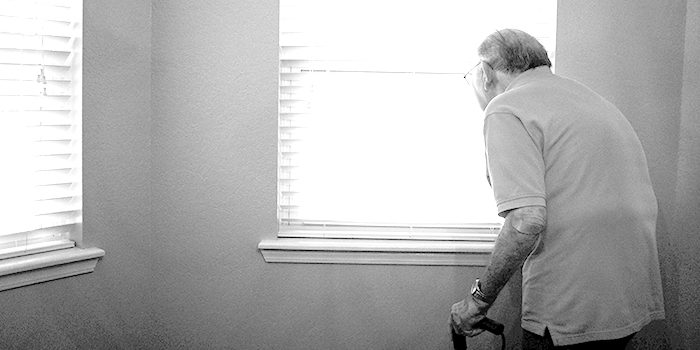Posted on April 1, 2020
COVID-19

Share
“even to your old age I am he, and to gray hairs I will carry you. I have made, and I will bear; I will carry and will save.” Isaiah 46:4
Health officials agree that those over age 60, especially those with chronic health conditions, are vulnerable to the COVID 19 virus. Caregivers are tasked to ensure their elderly family members are protected, with special care to keep them isolated from exposure to the illness as much as possible. Centers caring for the frail elderly are on “lockdown” with no visitors allowed in and only “essential staff”, after screening for health issues, are allowed on the premises.
John’s Hopkins Medicine offers guidelines on assisting the elderly in lieu of the Covid-19 crisis.
Alicia Arbaje, M.D., M.P.H., Ph.D. specializes in internal medicine and geriatrics at Johns Hopkins. Arbaje says, “Social distancing doesn’t have to mean isolation or loneliness. We need to keep older adults safe, but also keep in mind that social isolation can have a negative impact on older people’s immunity and mental health….”
With many houses of worship closing their doors until the pandemic eases, congregants, especially older ones, may feel cut off. “Faith communities are often a big part of older adults’ social lives,” Arbaje says. “Caregivers might help their loved one access online services and outreach for spiritual solace and support.”
Loneliness and isolation are among the risk factors for elderly individuals to develop depression. Prior to the COVID-19 pandemic, elderly folks became isolated due to the deaths of spouses and peers. With the current suggested restrictions, it can be especially difficult for our seasoned adults to make connections with friends and family.
In an article written by Christine Moutier, Chief Medical Officer, American Foundation for Suicide Prevention entitled, COVID-19: We Must Care for Older Adults’ Mental Health, Moutier identified the most powerful factors that impact the health and well-being of older adults and how COVID-19 might impact them. These factors included:
Moutier offered suggestions for caring for older loved ones during the COVID-19 pandemic:
For those of us who struggle with our own issues pertaining to this pandemic, it could be helpful to reach out to older adults for our own mental health. Those who have lived six, seven, eight decades and longer have experienced extremely difficult situations that occurred world-wide. Wars, economic depressions, global tragedies and pandemics have been a part of life for centuries. It is very likely that they have stories to share about how they survived those difficulties. These stories can provide us with encouragement and comfort as we face COVID-19.
Look for ways to help the elderly stay home, yet remain connected. Write a letter or two to a senior care community, including return envelopes and stamps, and start up a Pen Pal letter exchange. Call up your elderly relatives or neighbors and get their grocery list. Order them online from your local grocer, then pick it up and deliver. Have a conversation and a wellness check-in as you abide by social distance and hygiene principles.
Even with social distancing, we can draw emotionally closer together. Perhaps even more than if we did not face a deadly virus. Pay attention to our elderly; who have weathered the tragedies as well as the triumphs of this life for many generations. Reach out to them. Learn from them. Care for them. You may be their lifeline through this, and they may be yours.
“Do not cast me off in the time of old age; forsake me not when my strength is spent.” Psalm 71:9
Toni Larson – Director of Counseling for Lutheran Family Service and Director of Social Services for Perry Lutheran Homes.
Are you having a difficult time coping with worry, anxiety or fear? Talk with one of our expert, Christian counselors via smartphone or computer today. Learn more about distance counseling HERE.
Looking for daily encouragement via prayer? Follow us on Facebook!
More posts about COVID-19